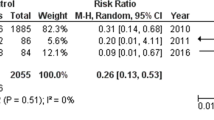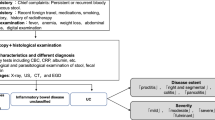Abstract
Gastro-oesophageal reflux disease (GORD) is associated with a broad array of symptoms that may be typical or atypical of the disease and that may be accompanied by erosive oesophagitis. Symptom scales that have historically been employed to assess response to treatment in GORD clinical trials do not typically account for the heterogeneous, episodic nature of GORD and the poor correlation between patients’ and physicians’ assessment of symptoms. The ReQuest™ questionnaire permits self-assessment of changes on a broad range of GORD-related symptoms on a daily basis and in combination with the Los Angeles (LA)-classification (ReQuest™/LA-classification) to assess complete remission of GORD. Pantoprazole and esomeprazole are two of the newer proton pump inhibitors and are the first to be systematically reviewed using the ReQuest™ questionnaire. Results from recent head-to-head trials have shown pantoprazole and esomeprazole to be highly and equally effective treatments for (i) rapid and sustained relief of ReQuest™-assessed GORD-related symptoms in patients with non-erosive GORD or endoscopically confirmed erosive GORD, and (ii) achieving a combined outcome comprising endoscopically confirmed healing and ReQuest™-assessed symptom relief in patients with erosive GORD. There is some preliminary evidence to suggest that pantoprazole may be the better choice of treatment in terms of its potential to maintain control of symptoms in patients for whom night-time symptoms are a concern and if taken as on-demand rather than continuous maintenance therapy.





Similar content being viewed by others
References
Dent J, El-Serag HB, Wallander MA, et al. Epidemiology of gastro-oesophageal reflux disease: a systematic review. Gut 2005 May; 54(5): 710–7
Holtmann G. Reflux disease: the disorder of the third millennium. Eur J Gastroenterol Hepatol 2001 May; 13Suppl. 1: S5–11
Modlin IM, Malfertheiner P, Hunt RH, et al. GERD evaluation: time for a new paradigm? J Clin Gastroenterol 2007 Mar; 41(3): 237–41
Martinez SD, Malagon IB, Garewal HS, et al. Non-erosive reflux disease (NERD): acid reflux and symptom patterns. Aliment Pharmacol Ther 2003 Feb 15; 17(4): 537–45
Dent J, Brun J, Fendrick AM, et al. An evidence-based appraisal of reflux disease management: the Genval Workshop Report. Gut 1999; 44Suppl. 2: 1–16
Dent J, Armstrong D, Delaney B, et al. Symptom evaluation in reflux disease: workshop background, processes, terminology, recommendations, and discussion outputs. Gut 2004 May; 53uppl. 4: iv1–24
Monnikes H. The complete remission concept. Drugs Today (Barc) 2006 Jul; 42Suppl. B: 9–14
Armstrong D, Marshall JK, Chiba N, et al. Canadian Consensus Conference on the management of gastroesophageal reflux disease in adults: update 2004. Can J Gastroenterol 2005 Jan; 19(1): 15–35
DeVault KR, Castell DO. Updated guidelines for the diagnosis and treatment of gastroesophageal reflux disease. Am J Gastroenterol 2005 Jan; 100(1): 190–200
Orlando RC. Current understanding of the mechanisms of gastro-oesophageal reflux disease. Drugs 2006; 66Suppl. 1: 1–5 Discussion 29-33
Stanghellini V, Armstrong D, Monnikes H, et al. Systematic review: do we need a new gastro-oesophageal reflux disease questionnaire? Aliment Pharmacol Ther 2004 Mar 1; 19(5): 463–79
Fass R. Symptom assessment tools for gastroesophageal reflux disease (GERD) treatment. J Clin Gastroenterol 2007; 41: 436–44
Armstrong D, Monnikes H, Bardhan KD, et al. The construction of a new evaluative GERD questionnaire — methods and state of the art. Digestion 2004; 70(2): 71–8
Stanghellini V. ReQuest: new dimensions in the assessment and management of GERD. Drugs Today (Barc) 2005 Jul; 41Suppl. B: 7–11
Monnikes H, Bardhan KD, Stangheilini V, et al. Evaluation of GERD Symptoms during therapy: Part II. Psychometric evaluation and validation of the new questionnaire ReQuest in erosive GERD. Digestion 2004; 69(4): 238–44
Bardhan KD, Stanghellini V, Armstrong D, et al. International validation of ReQuest™ in patients with endoscopy-negative gastro-oesophageal reflux disease. Aliment Pharmacol Ther 2004 Oct 15; 20(8): 891–8
Bardhan KD, Stanghellini V, Armstrong D, et al. Evaluation of GERD symptoms during therapy: Part I. Development of the new GERD questionnaire ReQuest™. Digestion 2004; 69(4): 229–37
Bardhan KD, Armstrong D, Fass R, et al. The ReQuest/LA-classification: a novel integrated approach for the comprehensive assessment of treatment outcome of gastroesophageal reflux disease (GERD). Can J Gastroenterol 2005; 19Suppl. C: R.0031
Bardhan KD, Achim A, Ridderman T, et al. A clinical trial comparing pantoprazole and esomeprazole to explore the concept of achieving ‘complete remission’ in gastro-oesophageal reflux disease. Aliment Pharmacol Ther 2007; 25: 1461–9
Glatzel D, Abdel-Qader M, Gatz G, et al. Pantoprazole 40 mg is as effective as esomeprazole 40 mg to relieve symptoms of gastroesophageal reflux disease after 4 weeks of treatment and superior regarding the prevention of symptomatic relapse. Digestion 2006; 74(3-4): 145–54
Monnikes H, Pfaffenberger B, Gatz G, et al. Novel measurement of rapid treatment success with ReQuest: first and sustained symptom relief as outcome parameters in patients with endoscopy-negative GERD receiving 20 mg pantoprazole or 20 mg esomeprazole. Digestion 2005; 71(3): 152–8
Labenz J, Armstrong D, Lauritsen K, et al. A randomized comparative study of esomeprazole 40 mg versus pantoprazole 40 mg for healing erosive oesophagitis: the EXPO study. Aliment Pharmacol Ther 2005 Mar 15; 21(6): 739–46
Scholten T, Gatz G, Hole U. Once-daily pantoprazole 40 mg and esomeprazole 40 mg have equivalent overall efficacy in relieving GERD-related symptoms. Aliment Pharmacol Ther 2003 Sep 15; 18(6): 587–94
Labenz J, Armstrong D, Lauritsen K, et al. Esomeprazole 20 mg vs. pantoprazole 20 mg for maintenance therapy of healed erosive oesophagitis: results from the EXPO study. Aliment Pharmacol Ther 2005 Nov 1; 22(9): 803–11
Gillessen A, Beil W, Modlin IM, et al. 40 mg pantoprazole and 40 mg esomeprazole are equivalent in the healing of esophageal lesions and relief from gastroesophageal reflux disease-related symptoms. J Clin Gastroenterol 2004 Apr; 38(4): 332–40
Goh KL, Benamouzig R, Sander P, et al. Efficacy of pantoprazole 20 mg daily compared with esomeprazole 20 mg daily in the maintenance of healed gastroesophageal reflux disease: a randomized, double-blind comparative trial: the EMANCIPATE study. Eur J Gastroenterol Hepatol 2007 Mar; 19(3): 205–11
McColl E, Junghard O, Wiklund I, et al. Assessing symptoms in gastroesophageal reflux disease: how well do clinicians’ assessments agree with those of their patients? Am J Gastroenterol 2005 Jan; 100(1): 11–8
Stanghellini V, Armstrong D, Monnikes H, et al. Objective definition of symptom relief in clinical studies: determination of international GERD symptom thresholds based on ReQuest™ [abstract no. TI017]. Gastroenterology 2006; 130(4 Suppl. 2): A–456
Stanghellini V, Armstrong D, Monnikes H, et al. Determination of ReQuest-based symptom thresholds to define symptom relief in GERD clinical studies. Digestion 2005; 71(3): 145–51
Thomson ABR, Sander P. ReQuest™ is a powerful instrument to differentiate treatment response [abstract]. Can J Gastroenterol 2007; 21Suppl. A: 157
Holtmann G, DeVault KR, Chassany O, et al. Fast onset of action: the initial dose of pantoprazole is superior to esomeprazole in reducing the frequency and intensity of acid episodes determined by ReQuest™ [abstract]. Gut 2006; 55Suppl. V: A271
DeVault KR, Holtmann G, Malagelada JR, et al. Pantoprazole 40 mg (PANTO) is superior to esomeprazole 40 mg (ESO) in resolving sleep disturbances in GERD patients [abstract]. Am J Gastroenterol 2006; 102Suppl. 2: S–399
Gillessen A. Balanced perspective essential in erosive oesophagitis treatment [letter]. Aliment Pharmacol Ther 2005 Nov 1; 22(9): 889–90; author reply 890-1
Shaker R. Nighttime GERD: clinical implications and therapeutic challenges. Best Pract Res Clin Gastroenterol 2004; 18 Suppl.: 31–8
Orr WC. Night-time gastro-oesophageal reflux disease: prevalence, hazards, and management. Eur J Gastroenterol Hepatol 2005 Jan; 17(1): 113–20
Gillessen A, Schoffel L, Naumburger A. Financial restrictions in health care systems could affect treatment quality of GERD-patients [in German]. Z Gastroenterol 2006 May; 44(5): 379–85
Katashima M, Yamamoto K, Tokuma Y, et al. Comparative pharmacokinetic/pharmacodynamic analysis of proton pump inhibitors omeprazole, lansoprazole and pantoprazole, in humans. Eur J Drug Metab Pharmacokinet 1998 Jan-Mar; 23(1): 19–26
Shin JM, Sachs G. Restoration of acid secretion following treatment with proton pump inhibitors. Gastroenterology 2002 Nov; 123(5): 1588–97
Sachs G, Shin JM. The basis of differentiation of PPIs. Drugs Today (Barc) 2004 Mar; 4 Suppl. A: 9–14
Van Soest EM, Siersema PD, Dieleman JP, et al. Persistence and adherence to proton pump inhibitors in daily clinical practice. Aliment Pharmacol Ther 2006 Jul 15; 24(2): 377–85
Metz DC, Inadomi JM, Howden CW, et al. On-demand therapy for gastroesophageal reflux disease. Am J Gastroenterol 2007 Mar; 102(3): 642–53
Rubin G, Uebel P, Brimo-Kayek A, et al. Derivation and validation of a short reflux symptom questionnaire (ReQuest in Practice™) in patients with GERD. Abstract accepted for presentation at the American College of Gastroenterology Annual Scientific Meeting [AJG 2007]. In press
López LH, Schneider OP, Vargas AJ, et al. Effectiveness of pantoprazole magnesium dihydrate in the treatment of symptoms in gastro-oesophageal reflux disease [abstract]. Gut 2006; 55Suppl. V: A275
Scholten T, Teutsch I, Bohuschke M, et al. Pantoprazole ondemand effectively treats symptoms in patients with gastro-oesophageal reflux disease. Clin Drug Invest 2007; 27(4): 287–96
Acknowledgements
Editorial assistance in the preparation of this manuscript was provided by Joanne Dalton, and funded by Nycomed Canada Inc. The author has no conflicts of interest that are directly relevant to the content of this review. He has participated in the past as a speaker for Nycomed Canada Inc. No remuneration was received for this work.
Author information
Authors and Affiliations
Corresponding author
Rights and permissions
About this article
Cite this article
Thomson, A.B.R. The Concept of Complete Remission of Gastro-Oesophageal Reflux Disease. Clin. Drug Investig. 27, 663–672 (2007). https://doi.org/10.2165/00044011-200727100-00001
Published:
Issue Date:
DOI: https://doi.org/10.2165/00044011-200727100-00001




